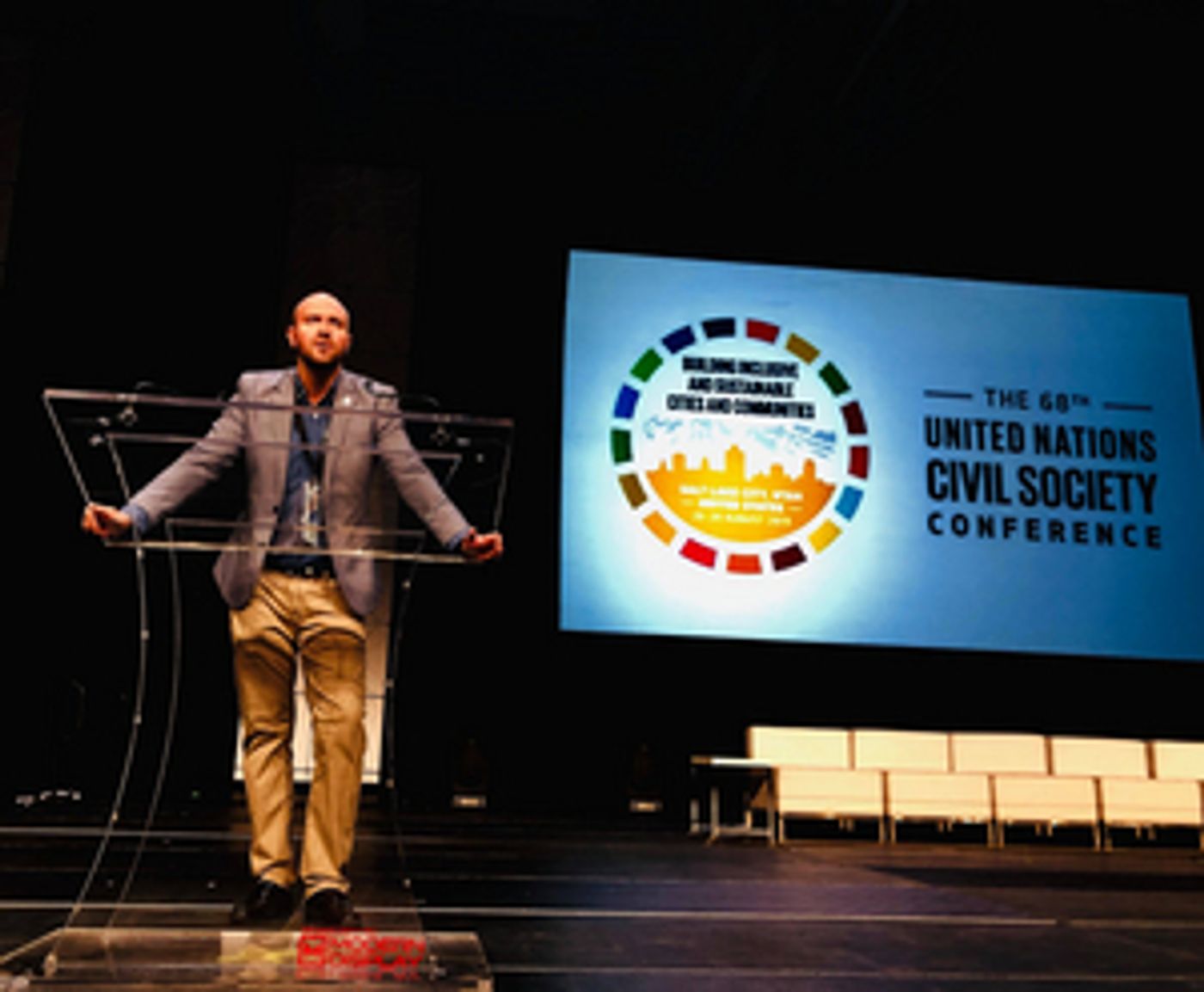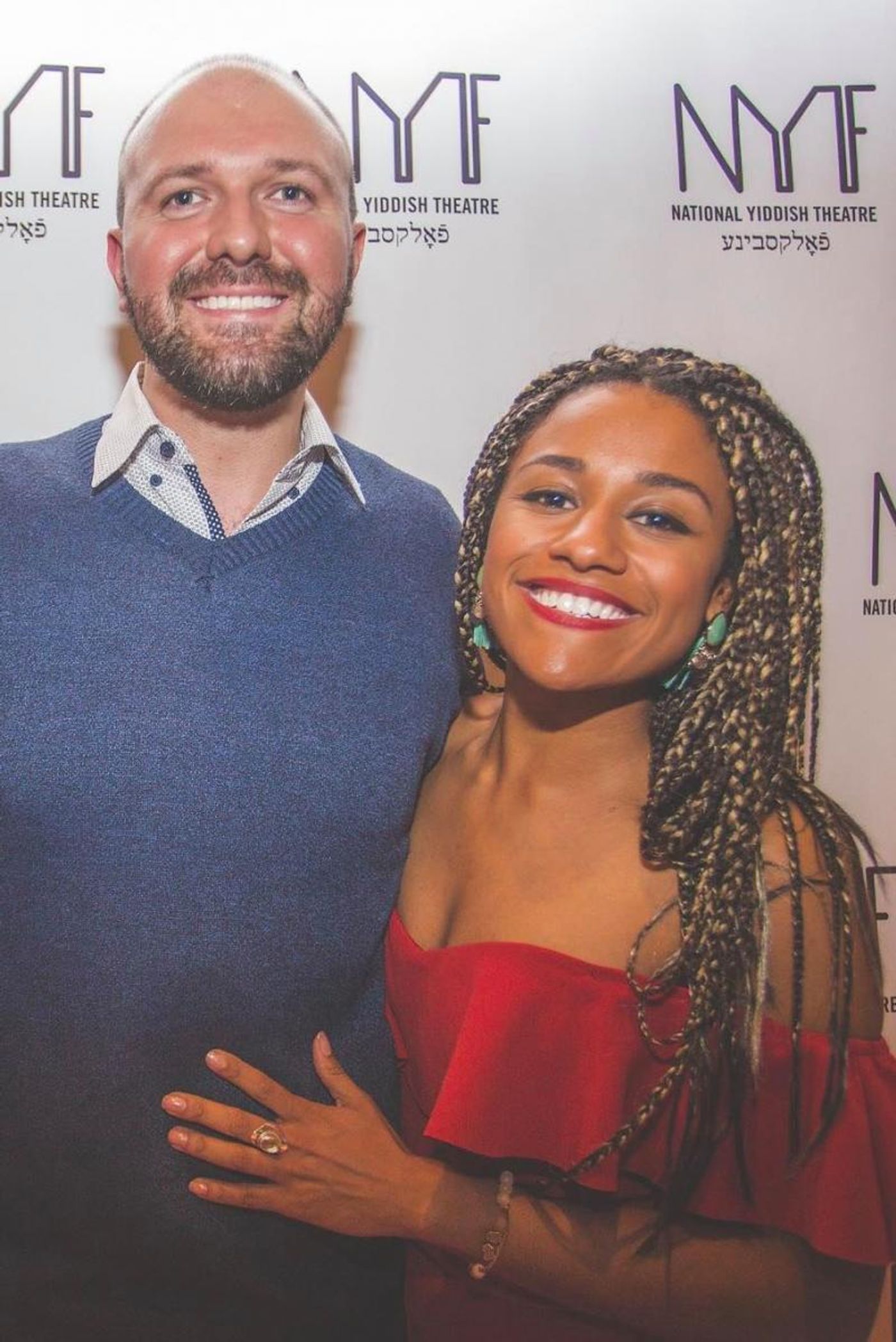BWW Interview Part 2: As Newly Named Managing Director, Chris Massimine Will 'Pioneer Way for a Brighter' PIONEER THEATRE COMPANY

An exclusive BWW Q&A interview with Chris Massimine, the newly named Managing Director at Pioneer Theatre Company. Part 1 of this series introduced Massimine's background.
He's not lead actor on a hit Amazon Prime TV series. But Salt Lake City has The Marvelous Mr. Massimine.
Enamored with the stage from an early age and with experience as a young actor on Broadway, Chris Massimine got his first producer experience with "Rocky Horror Show." It was a fundraiser initiated for his senior-year high school classmates staged at the Brook Arts Center, a regional theater in Boundbrook, New Jersey. The run sold out.
At New York University, he first studied science, before switching to dramatic and comparative literature. Massimine then began a lucrative career in marketing and advertising. No stranger to pop culture, he also held production jobs on "Jersey Shore" and "Boardwalk Empire."
Busy outside the world of theater, he had no intention to return. "Of course, no matter which road you take, destiny has its means of ensuring that you find your way home," he said at the time.
As Chief Executive Officer of National Yiddish Theatre Folksbiene, where be began as Marketing Director, the company's annual operational budget grew from $750,000 when he joined to $4 million today. And non-Yiddish speakers now far outnumber Yiddish-speaking theatergoers.
Producer of "American Idiot" and "Indecent," Massimine earned two Tony Award nominations. But his stature as a leading New York producer was cemented with the Yiddish-language production of "Fiddler on the Roof." At its premiere, "Fidler Afn Dakh" was honored by each Off-Broadway organization, and its successful run continues.
What were the strongest attractions to accepting the Managing Director position at PTC?
Chris Massimine: PTC has such a brilliant reputation for top-tier work and first-class service, to both patrons and visiting artists alike. The company's artistic leadership in Karen Azenberg is second-to-none in my opinion. She works tirelessly to ensure an eclectic season is built that is entirely focused on producing the best of theater for a community of avid cultural enthusiasts. This is besides the fact that we share a truly bizarre and wonderful sense of humor. The theater itself is located on the beautiful U of U campus, situated in the middle of a vibrant nirvana, enclosed by mountains surrounded by natural wonders. What's not to love?

Tony nominee Ariana DeBose
What factor did Utah's unique culture play in your decision and as you manage direction of the company?
CM: I am fascinated by the layers of culture in this state. That is a good thing. Its stratification is richer than most people would know by looking at the census. There's this finite line between adventurous storytelling and too much, and it is remarkable to see how that line shifts on a monthly basis. I get such a kick out of it. It adds to the uniqueness. The composition is literally shifting at a marathon pace.
In part, this goes hand-in-hand with the expanding economy and changing trends in consumerism. The other component is the transformation of the state into a self-sustaining society, with a capital city that is fast-mirroring New York City demographics. I'm not convinced if (when) the market crashes, Utah will be hit like the rest of the country.
What plans do you have to advance the profile and broaden the scope of the company?
CM: This is the fun part. Karen and I have a shared vision of leading the way and setting the bar for performance across the states. SLC is the perfect place for out-of-town try-outs (take our currently running production of Cagney, for example), and Pioneer has the knowledge and wherewithal to produce a Broadway-scale-and-caliber show that can be built in our shops to move. We have some of the best artisans in the world working with us and our in-residence artists like the getaway so much, they keep coming back to create incredible art. We're fortunate like that. We're also fortunate to have an exhilarating ongoing affiliation with the University of Utah and its College of Fine Arts Theatre Department. Together we are thriving with ongoing collaborations that bridge performance with scholarship. It's my delight to work wearing a dual hat: one as PTC's managing director; and the other as a senior administrator in academia.
At PTC we're developing professional theater not seen anywhere else in the country. In essence, we're making great strides towards inventing a cultural blueprint for the future.
The company was founded as a theater of the community. Generation after generation in Utah have come to this theater. There is a profound love and appreciation that's directed both ways, and it begins from the inside out. We're a theater and, not but, we can be so much more. The performing arts carries a special responsibility to community development and global citizenship. We're the conscience of the world. The champions of empathy. The vehicle for paradigm change.
During my time in New York, I had the privilege of receiving a special appointment in administrations for both Mayor [Bill] de Blasio and Governor [Andrew M.] Cuomo and have taken that experience to a global level with Pioneer. For instance, this year I had the very distinct honor to be the arts keynote speaker at the annual United Nations Civil Society Conference. It's the first time in history the performing arts had that kind of opportunity. It put the theater industry in front of the world in a very different lens, specific to its importance in growth, sustainability and, frankly, existence -- or at least an existence that is worthwhile.
In short, PTC is making pace at record speed, both as an arts leader and voice of empathetic reasoning in an often unreasonable world. We are literally "pioneering" the way for a brighter tomorrow.
How were you able to become the youngest theater executive leading a large, professional performing arts institution?
CM: It hasn't been an easy road. I've sacrificed a little bit of me time and again, failed certainly more than once, disappointed myself and colleagues who have depended on me to lead when making choices that didn't always pan out, left my family wondering where I was at late hours, and rendered my friends bewildered when I didn't show up for social appearances. I fell down often and hit the ground hard. I bruised. I cried. I broke. And when it was all said and done, I got up again. I kept doing that. Each time, I was a little less damaged and a lot more humbled. Eventually, I could maneuver and avoid getting in the way of myself.
It turns out, I love what I do, implicitly, and I have been fortunate to work with dedicated teams who have toiled collaboratively towards like-minded goals. Not everyone has liked me along the way. I've had let people go. I've also been let go. Throughout my career, I have held integrity upon the highest regard. I am my word. What you see is what you get, and you'll always know where you stand with me. It's taken some getting used to for others. I can wield unbridled enthusiasm and will give praise generously, and equally, when push comes to shove, I can wield the sword and shield.
I lead with a deep compassion and tempered consideration, though make no mistake I know when someone is taking advantage of a situation. While I'll move heaven for others to succeed, there does come a point when even the cosmos won't budge. Then you have tough decisions to make. And those decisions do not make you the least bit popular. The good news is running a company isn't a race for homecoming court. It is a long, steady pace that must be well-acclimated to evolving conditions and routinely taken into perspective. Over time, that perspective becomes insight, and measured insight has been my best tool for success.
Those who've stayed the course with me know my tremendous admiration and respect for them, and I give it freely. It's together we've set goals and reached them -- or didn't reach them -- and we learned from the experience. The key is we did it together and had each other's support and trust.
So, how did I get here, as the country's youngest professional performing arts leader? I grew from my losses, built consensus and was too stubborn to give up.
As a Tony nominee, do you see a regional Tony Award to be within PTC's grasp?
CM: It would be an unparalleled honor, not for the award alone, but to have earned it with such a marvelous bunch.
What excites you most about this season's productions?
CM: It's a blockbuster lineup of new, really new and classic work. I think Karen has hit a phenomenal balance for the season with substance, simplicity and spectacle, entwined into eight shows: the pre-Broadway "Cagney," "Dirty Rotten Scoundrels," "The Lifespan of a Fact," "The Play That Goes Wrong," "Mary Stuart," "Once on this Island," "Ass" (a world premiere, authored by Ellen Simon and developed at PTC) and "Something Rotten." It's a heck of a season, and I'm lucky to be tailing along.
Videos

